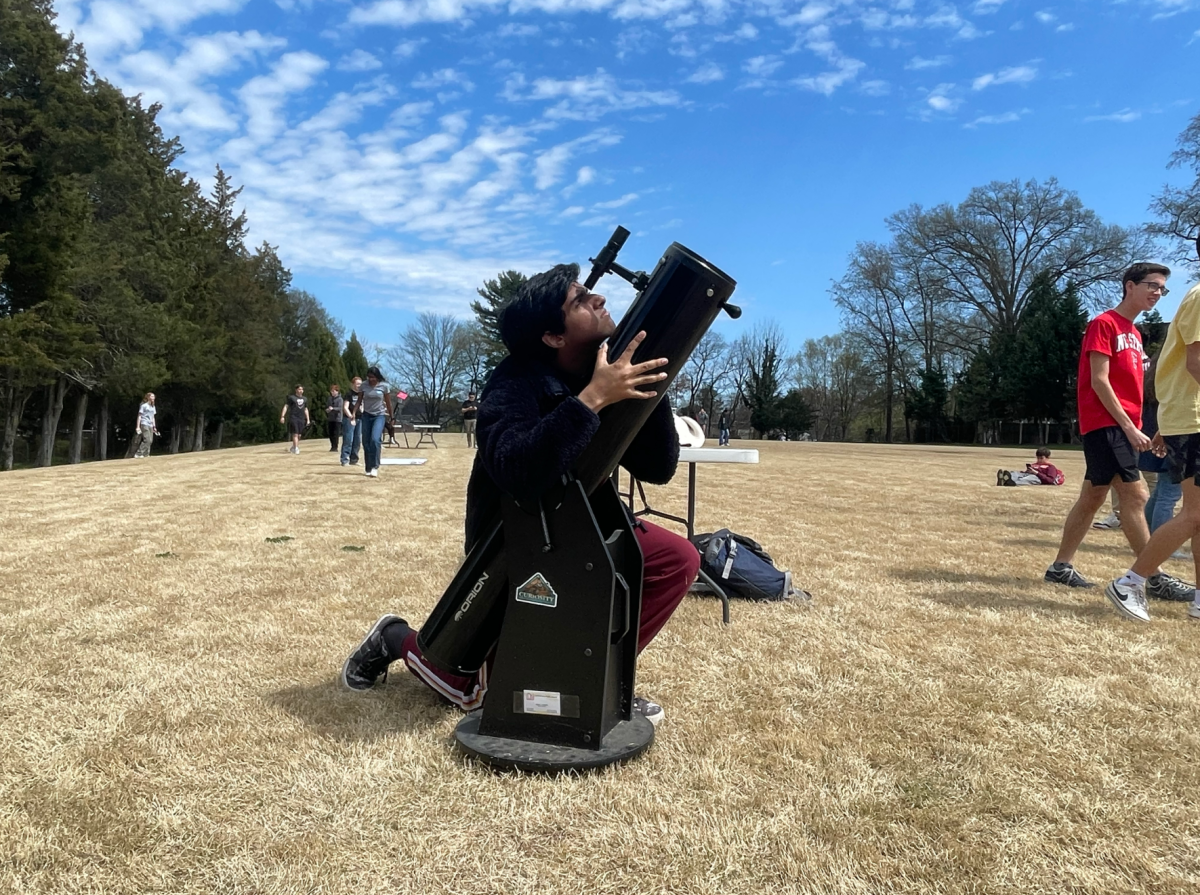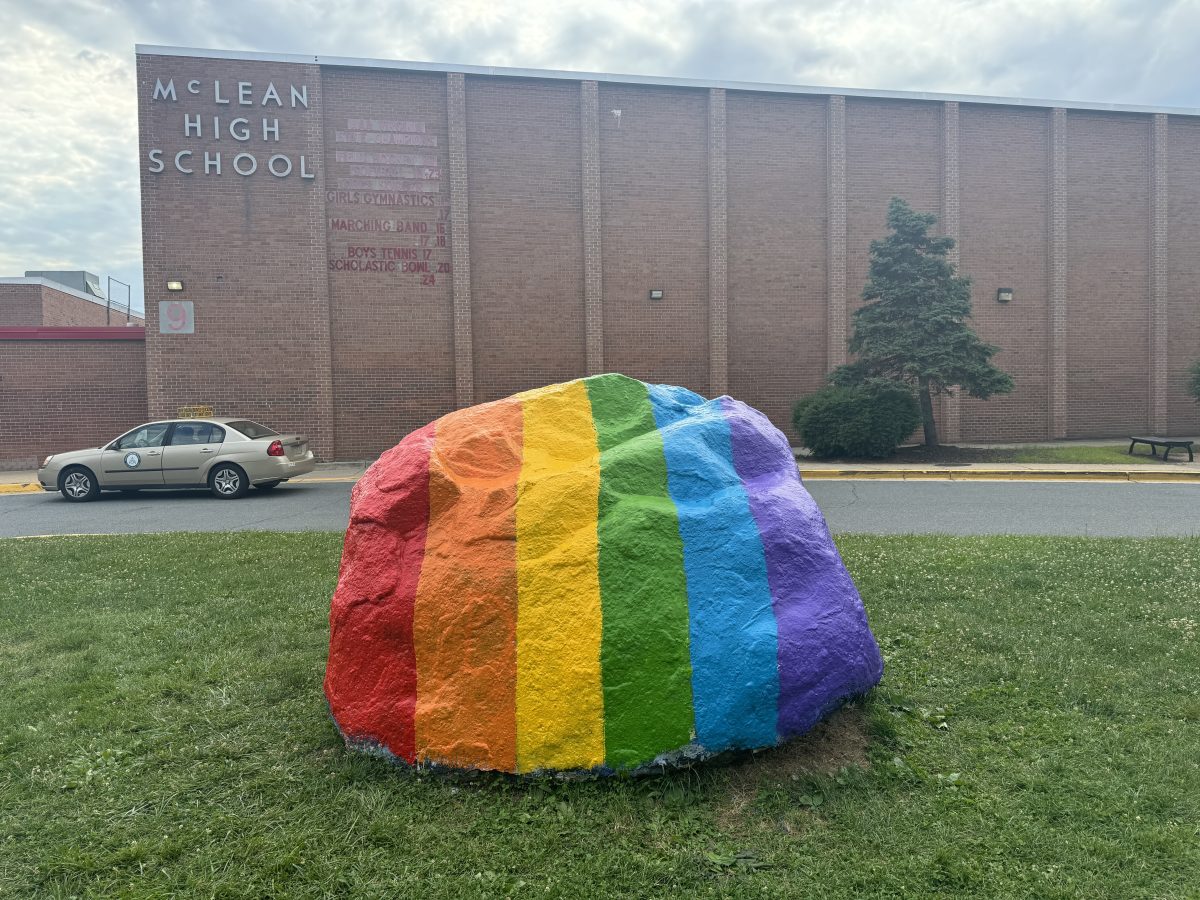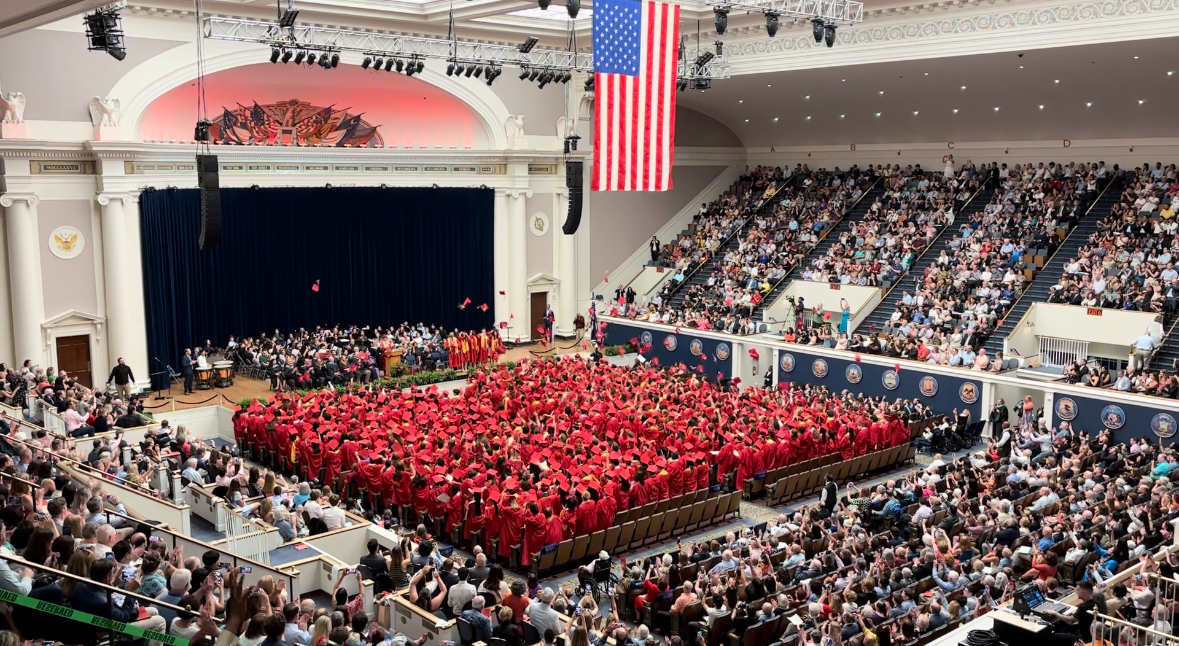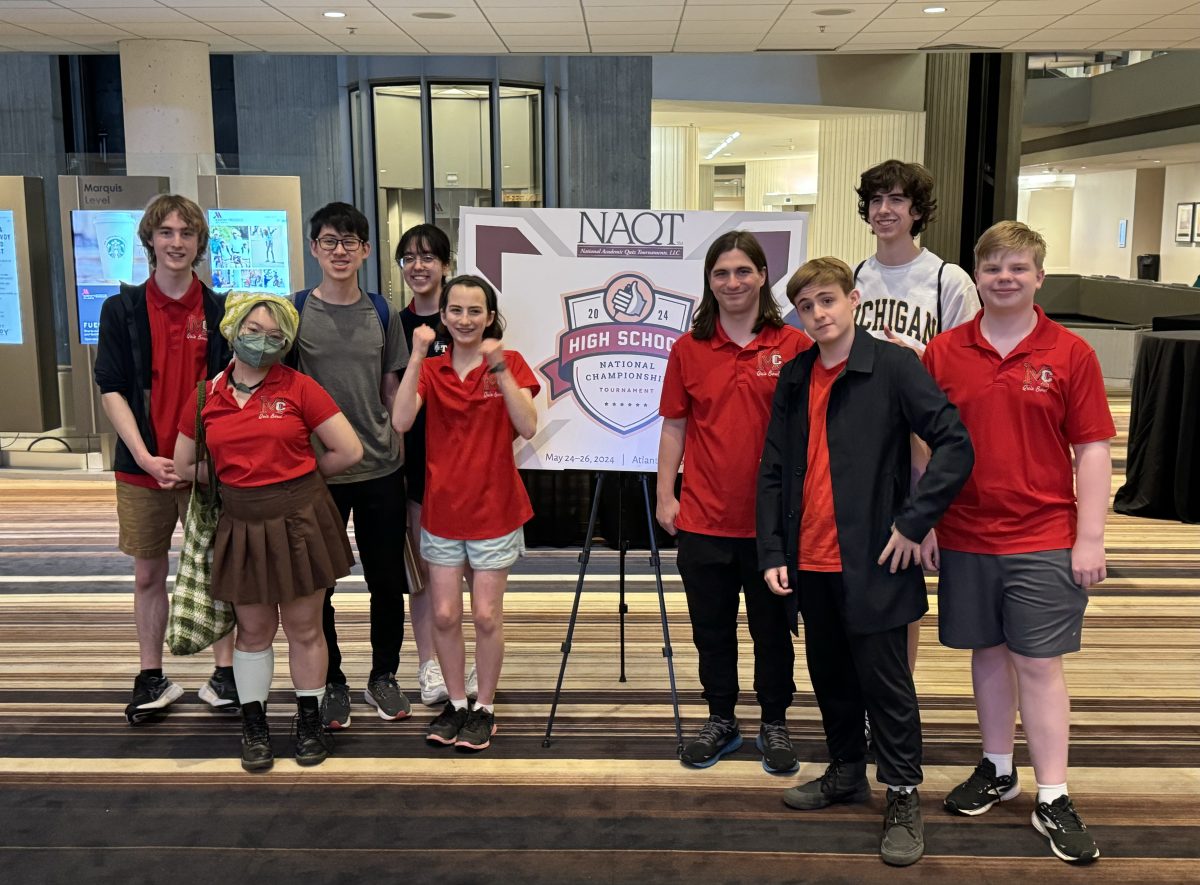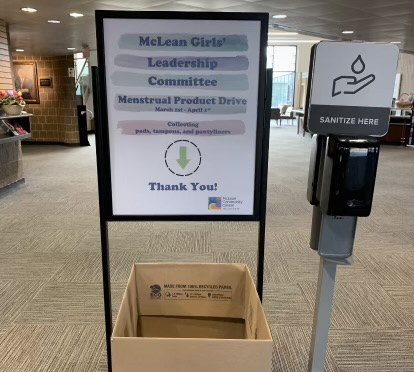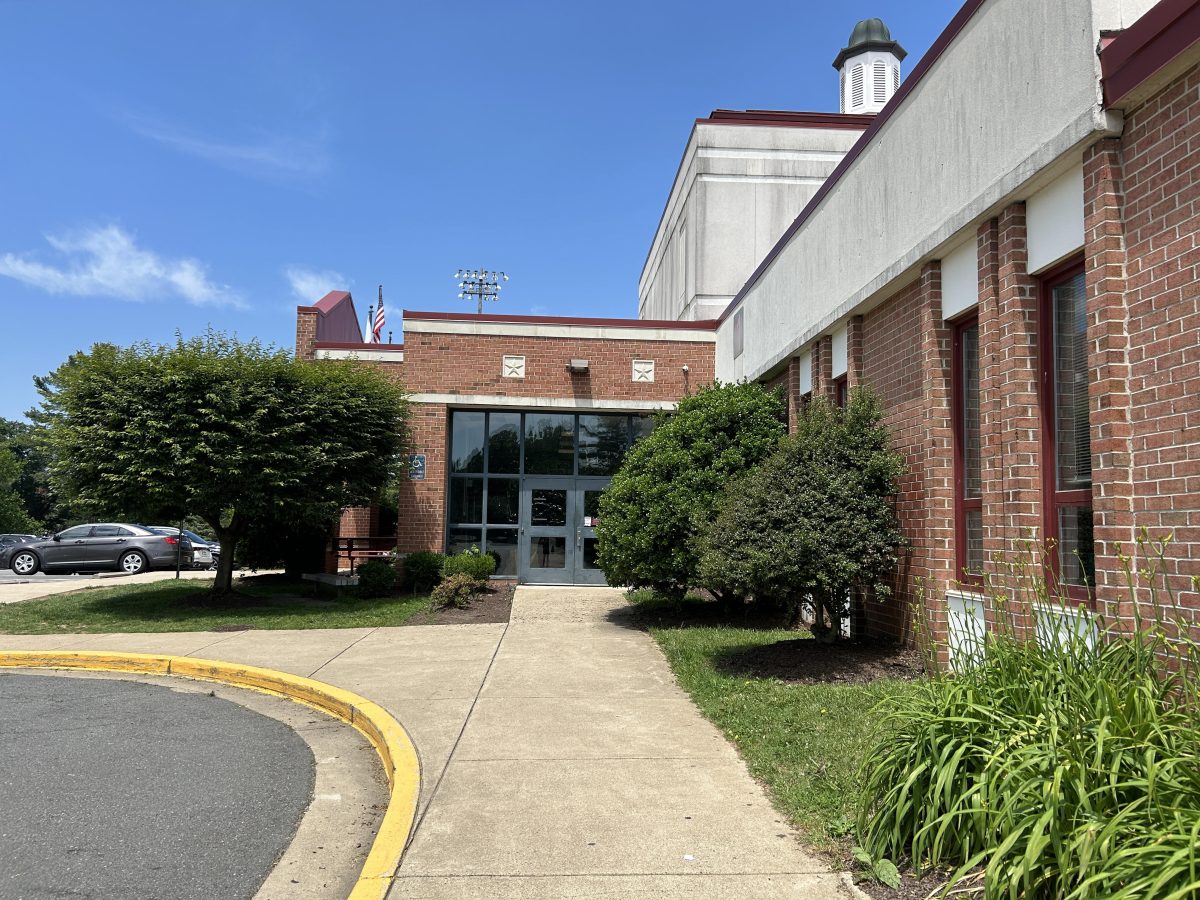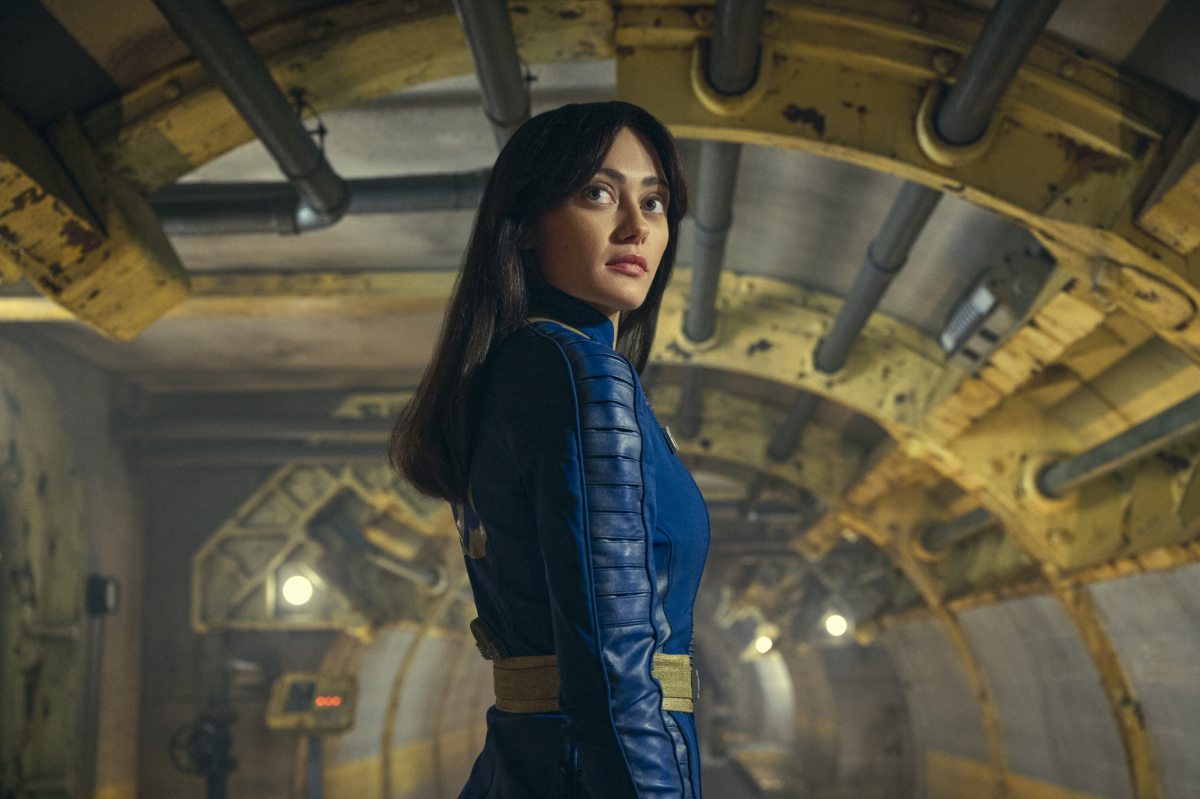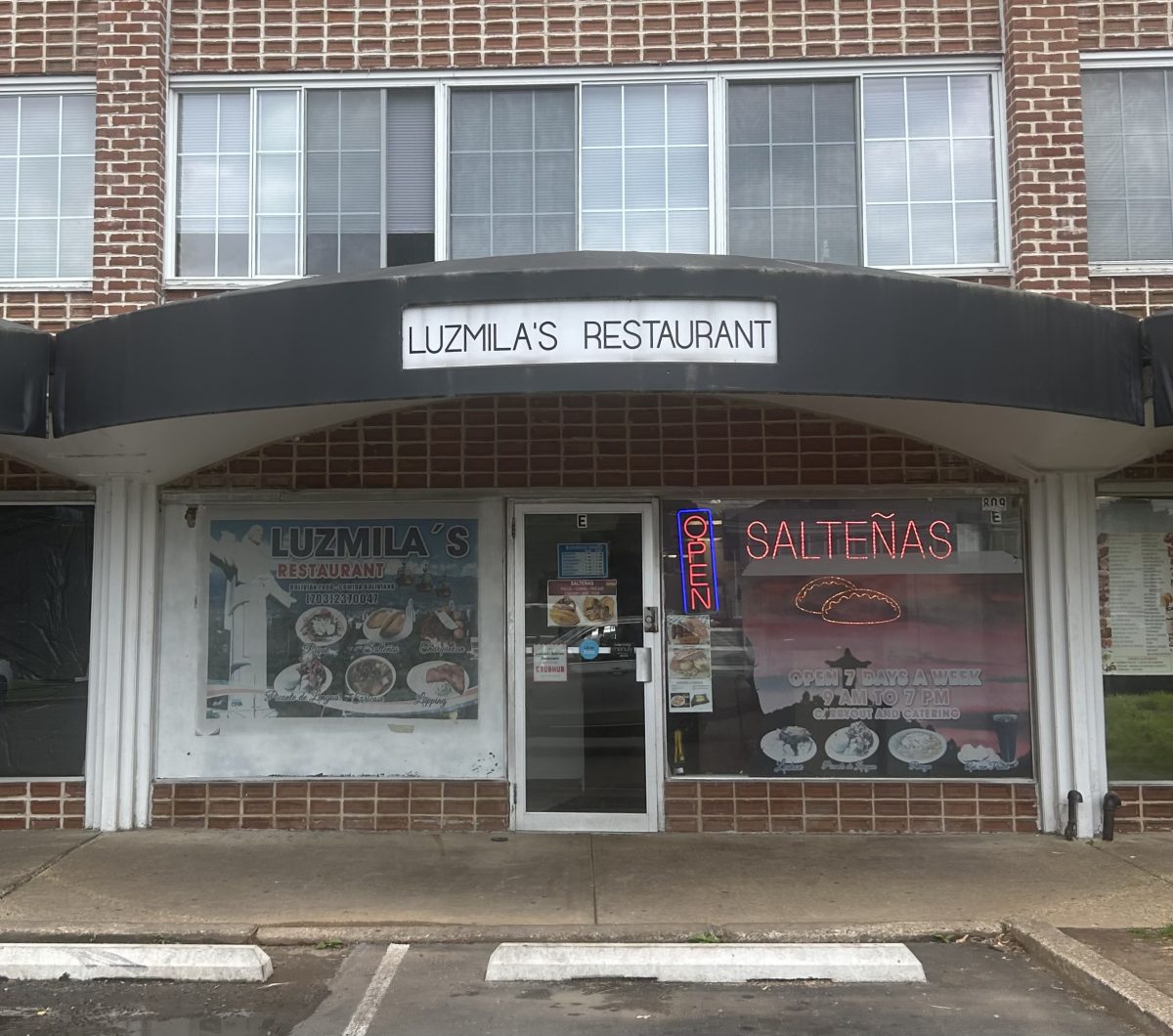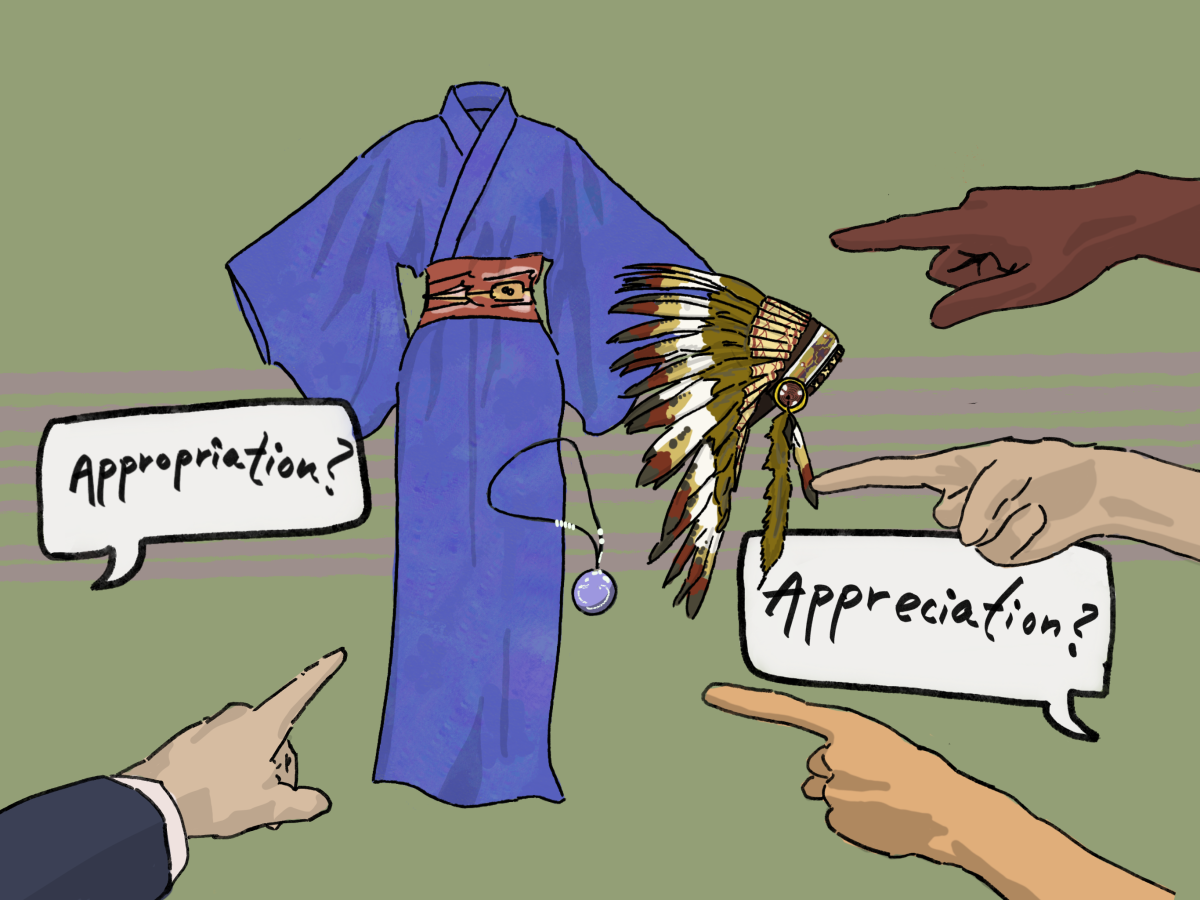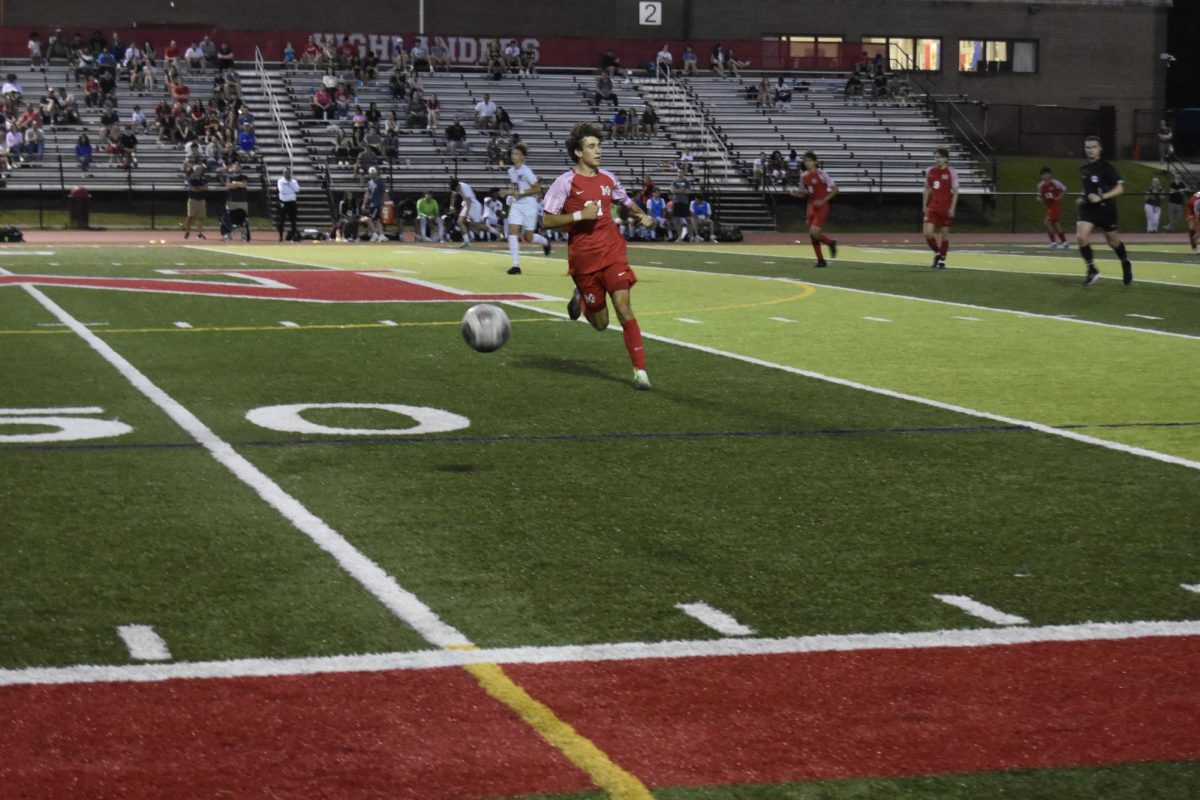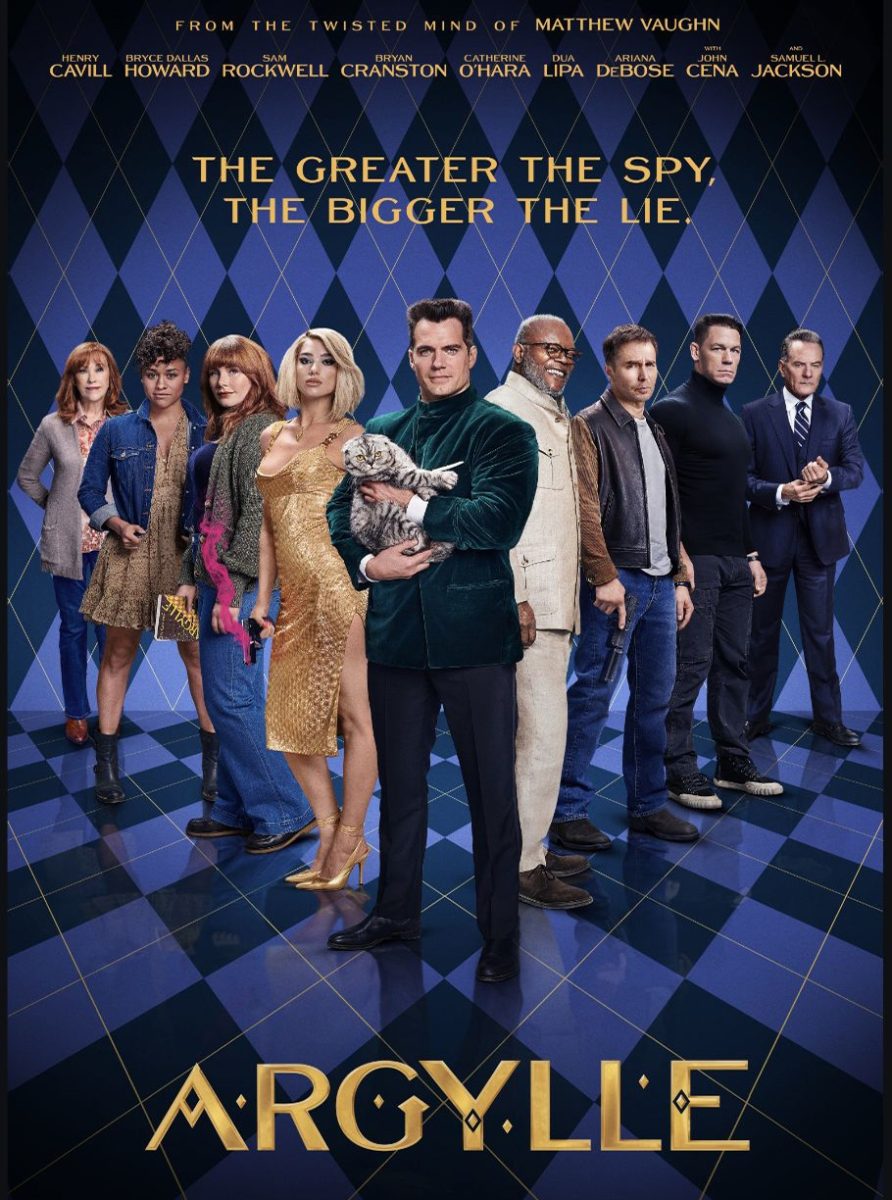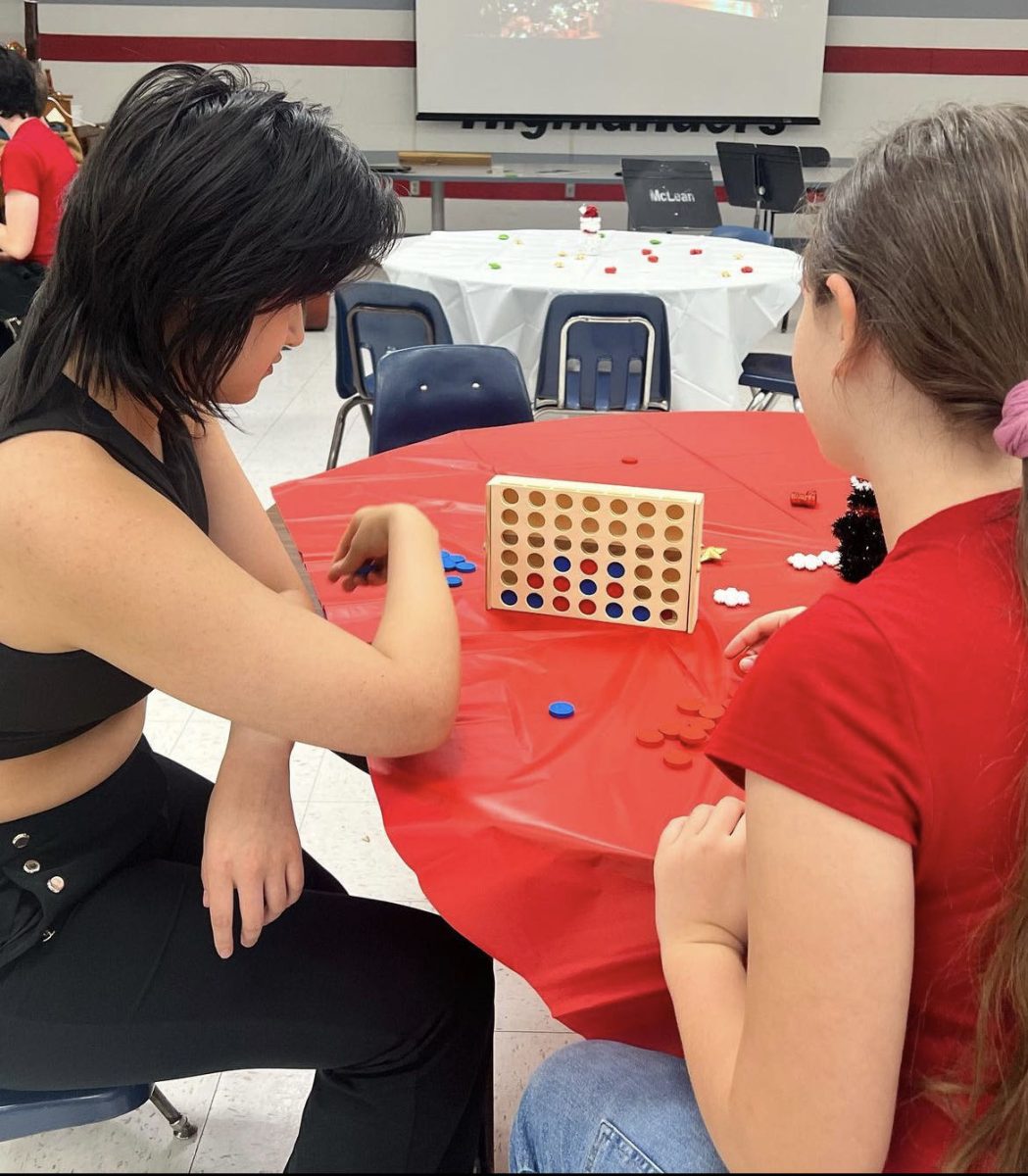Months before the solar eclipse on Monday, April 9, the astronomy club and their sponsor, Jeffery Brocketti, knew they had to extend the opportunity to witness the rare event to the rest of the student body. While the eclipse was only visible to 89% of totality in Northern Virginia, the club worked with administration to hold a viewing event on the practice football field.
“I first heard of [the eclipse] in 2017, and I was mentioning it to my astronomy classes last year,” Brocketti said. “The idea was first brought up at the beginning of the school year. We had an idea that we were going to do something and then the details came together in the last couple weeks.”
Safety concerns arose as administrators and leaders of the astronomy club were worried students would look directly at the sun, risking damage to their retinas, a small cell tissue at the back of each eyeball. To prevent any injuries, administration purchased solar eclipse glasses for teachers to distribute.
“Dr. Reilly and some of our science teachers had to order all the glasses to make sure it was safe for everyone,” assistant principal Emily Geary said. “We only allowed teachers to release their classes if the students got the glasses.”
The dangers of retinal damage are raised during a solar eclipse because the body doesn’t feel nearly as much pain from the direct rays of the sun in the moment.
“Looking at the sun [during an eclipse] is significantly more dangerous than looking at the sun on a normal day because the moon is covering [part of the sun] when you look directly up at the sun. Your eyes won’t begin to water and you won’t have the automatic reaction [to looking away],” astronomy club co-president Thamarie Pinnaduwage said. “Imagine putting your hand in a fire, but instead of having the bodily reaction to pulling away, you just keep your hand there.”
The solar eclipse glasses effectively block out light, allowing students to look up for a prolonged period of time.
The astronomy club enhanced the experience by preparing different stations across the field. The club helped students use professional pinhole cameras and telescopes to provide an alternative viewing experience. Additionally, they had pegboards with poster boards beneath them, which projected several replications of the eclipse on the poster boards.
Members of the astronomy club initially found difficulty in locating the eclipse in the lens of their telescopes.
“The problem [with using telescopes] is that either you blind yourself and get a clear view of the sun, or you have to guess and check,” Pinnaduwage said. “We have filters in the telescope that block most of the surrounding light, so you’re searching for a needle in a haystack. There’s no real direction because it’s all dark except for the sun.”
Leadership in the astronomy club wanted to use McLean’s observatory but could not because of the large number of students who wanted to participate.
“We didn’t [use the observatory] because when we got the number back of students, we just couldn’t figure out a way to have that many people in that small of a space. [We had] about 1,100 students,” Brocketti said.
For future astronomical phenomena, the astronomy club will continue to host events available to students.
“I remember we all came at four in the morning because there was a meteor shower,” Brocketti said. “Anytime there’s any kind of special event, we [may] have a sky watch out at the observatory during lunch.”
The next total solar eclipse is not expected to be visible in the McLean area anytime soon, highlighting the event as a unique experience.
“There’s another total [eclipse] going across in 2045, but it won’t be [seen in] totality in Northern Virginia,” Brocketti said. “I’ve researched, and [when] the next total eclipse is visible [ in Northern Virginia], we will be dead, our kids will be dead and their kids will be dead. In terms of a total eclipse, that’s not gonna happen here in our lifetimes.”


